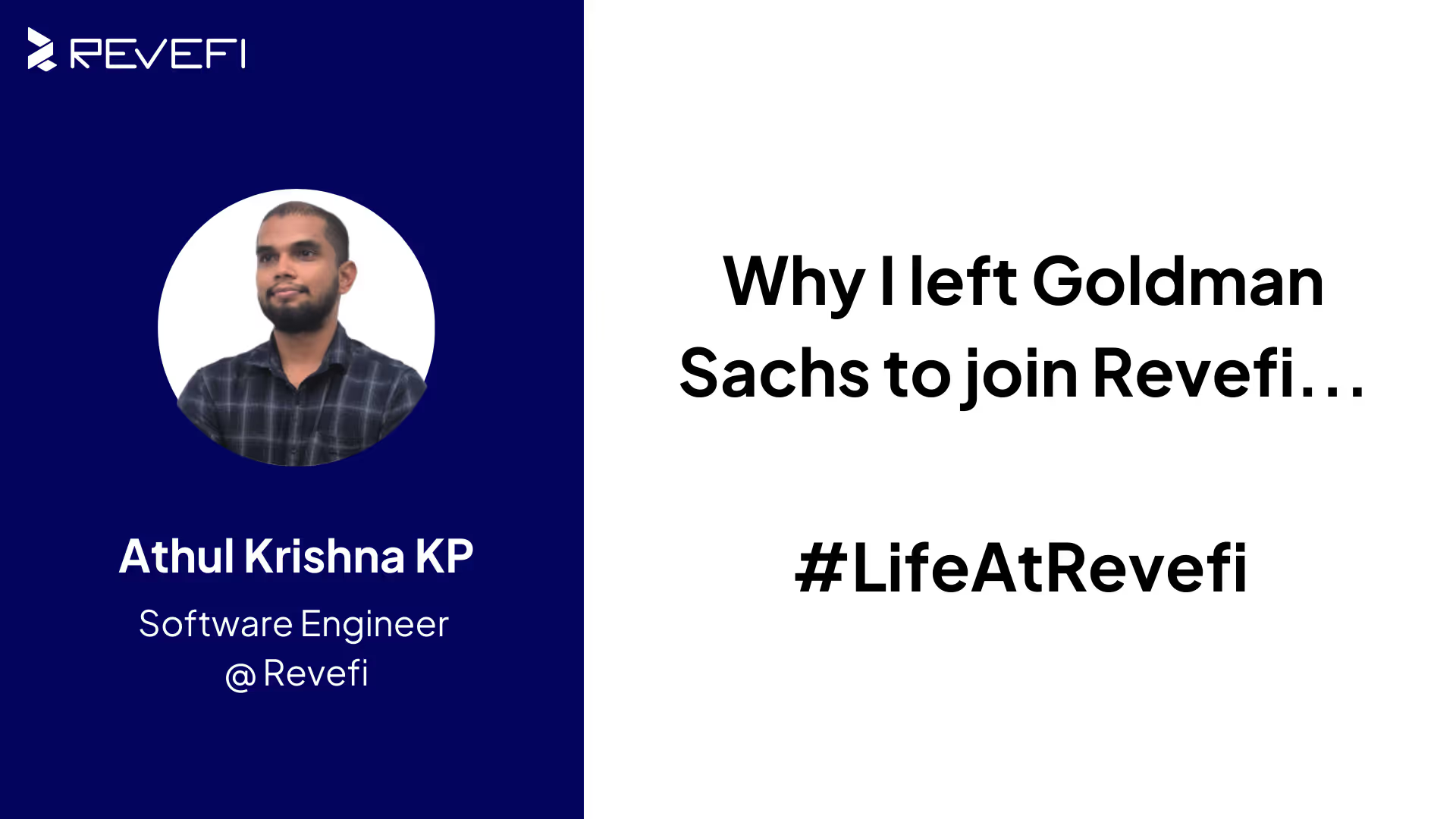Q1. Can you tell us a little about your previous roles, and what led to your decision to leave Goldman Sachs and join Revefi?
I started as a Backend Software Engineer in the Risk Division of Goldman Sachs for almost four years. It was a good learning ground, and I got to work on some interesting projects, especially around Snowflake.
One of the big challenges that we constantly witnessed was cost optimization with Snowflake, as there were always questions about how to save more or manage usage better. As I continued working on some internal solutions there, it got me thinking more deeply about the problem.
When I came across Revefi, who was actually solving that exact issue, it instantly clicked. Having seen the problem firsthand in a large organization, it felt like a real and
worthwhile space to be in. The idea of joining a smaller team, building something impactful, and learning more about the business side of things was a big part of why I made the switch—and I’m really glad I did.
Q2. What motivates you to show up at work every day?
To be honest, it is the mix of the people and the problem we’re solving. The team’s genuinely helpful, and I never feel stuck for long. Even small things like coffee chats or random lunchtime conversations make it fun to be in the office.
Also, seeing the impact of what we build is super motivating. We’re not just pushing code, we're solving something I’ve personally seen to be a pain point. And one of the coolest parts of being here is seeing how quickly something you build gets into the hands of users. You push a change, and it’s live—people are using it, and you can see the impact almost instantly. It makes the work feel meaningful, and keeps me excited to log in every day and contribute.
Q3. How do you define success in your role/job?
For me, success as a software dev means building systems that are not only efficient and scalable but also something I’d be proud to maintain six months later. I care a lot about writing clean, thoughtful code that doesn’t create headaches down the line for others or future me. I find a lot of satisfaction in simplifying complex logic, catching edgecases early, and spotting patterns that help improve overall design. If I’m helping the team ship confidently and learning something new every sprint, that’s a solid definition of success in my book.
Q4. What’s one challenge you’ve faced in your career, and how did you overcome it?
Back in my previous role, one of the challenges I faced was Snowflake cost optimization without clear ownership. When it is everyone’s problem but no one’s specific responsibility, it becomes tough to drive real change.
I decided to dig deeper on my own, started running cost analysis experiments, and built dashboards to track usage patterns. Over time, it got traction, and I was able to show the value of the changes. That experience not only helped me gain technical knowledge, but it also helped me understand how to push initiatives even when they’re not officially “assigned” to you.
Q5. How do you see your role evolving in the future, and what are you excited about next?
Right now, I’m enjoying being close to both the product and the customer problem. In the future, I’d love to get even more involved in shaping the product direction and maybe even explore aspects that overlap with product engineering.
Also, the idea of mentoring newer folks as we grow excites me, especially since my ownonboarding was so smooth. That kind of knowledge sharing is something I want to pay forward.
Q6. If you had to describe your team at Revefi in three words, what would they be?
Wicked-smart, supportive, and fun.
Q7. If you could give one piece of advice to someone starting in your field, what would it be?
Pick up on the 'why' behind the work as much as the 'how.'
It is easy to focus on just writing clean code or solving tickets, but understanding the problem you're solving (especially in fields like finance or data) adds a whole new layer to your learning and impact.
Also, never underestimate the value of asking questions. Some of my best learning moments have come from being curious and speaking up




